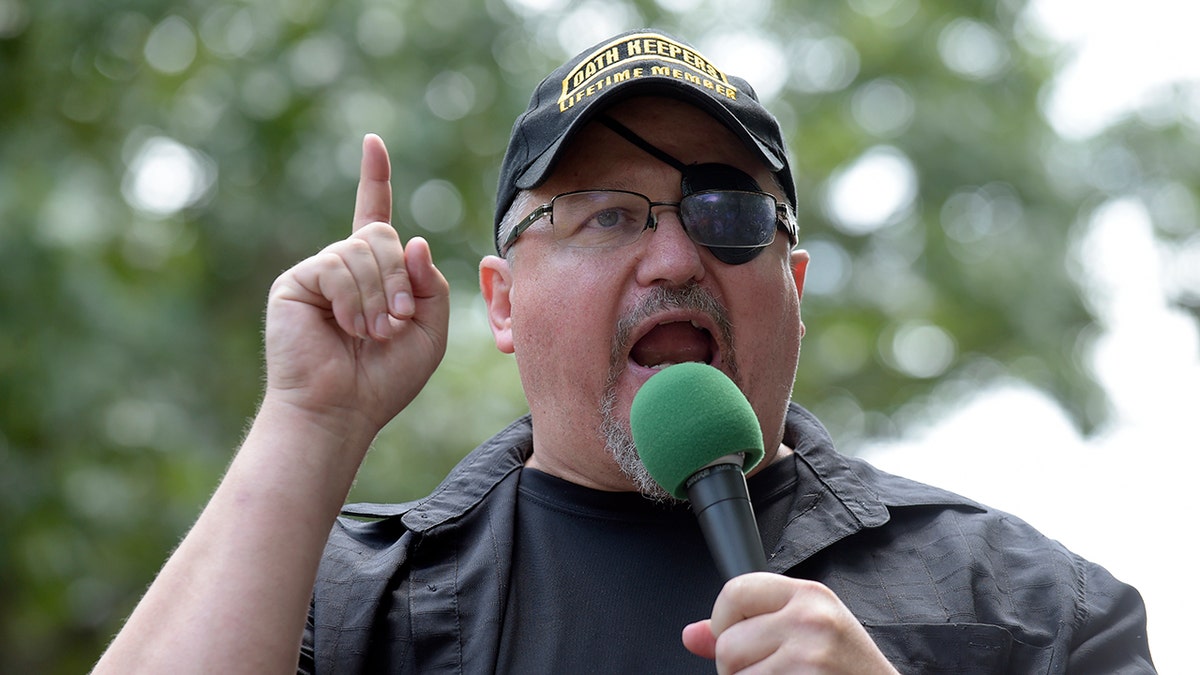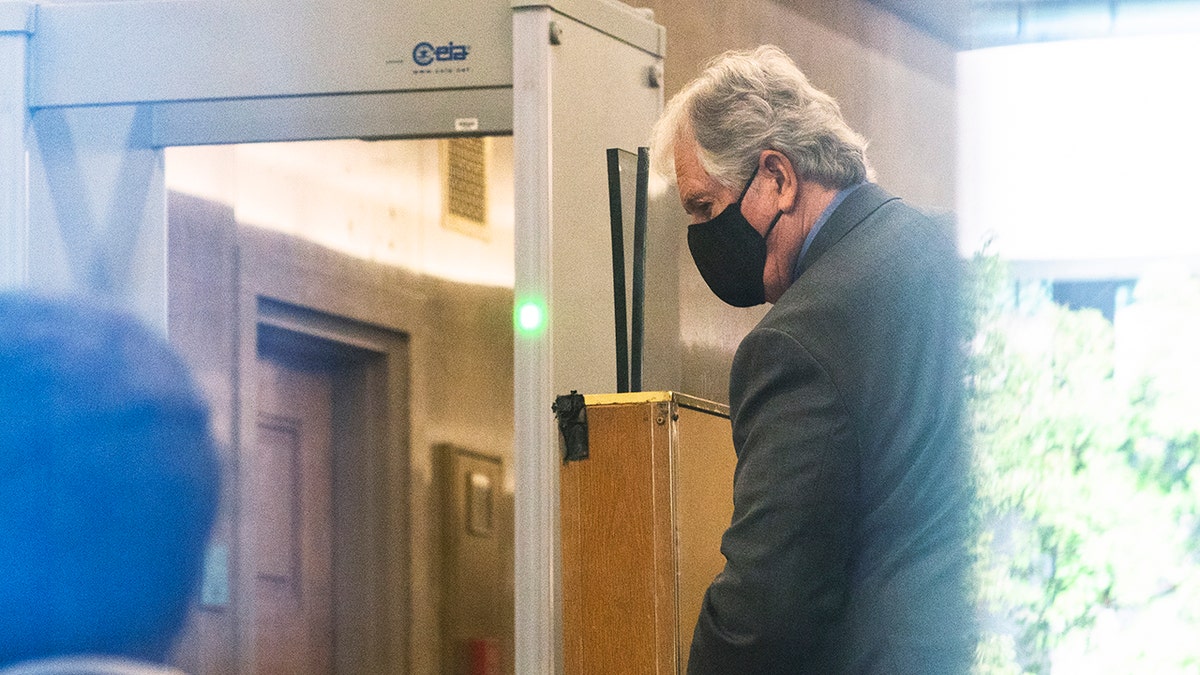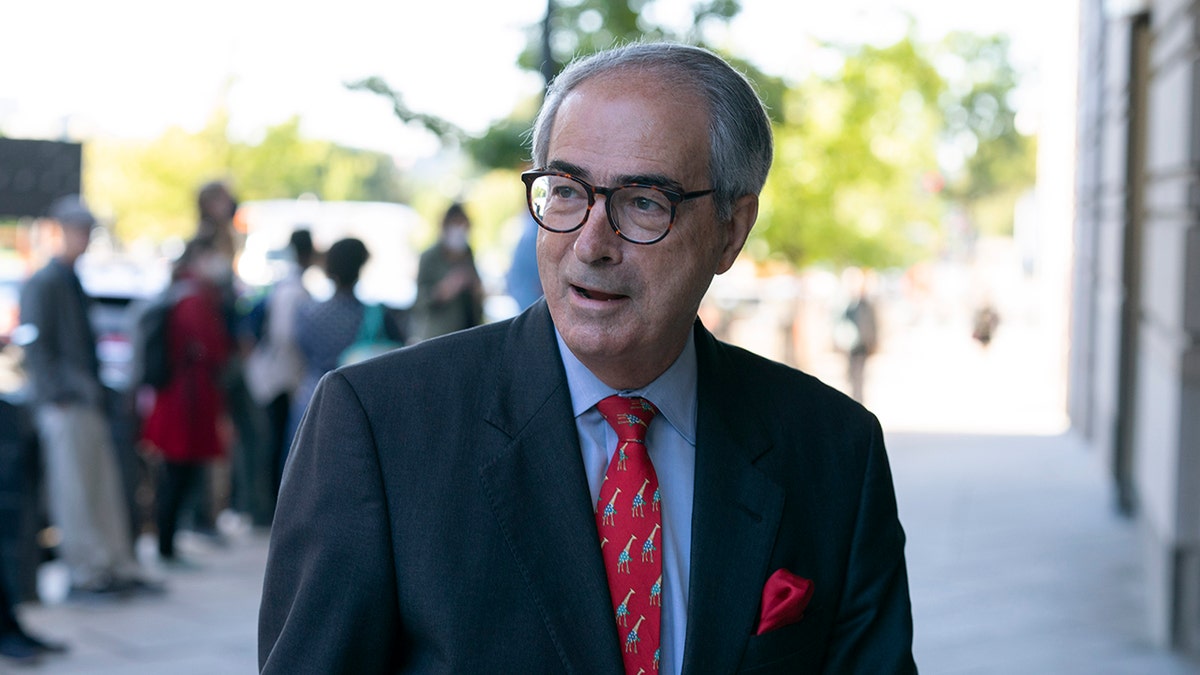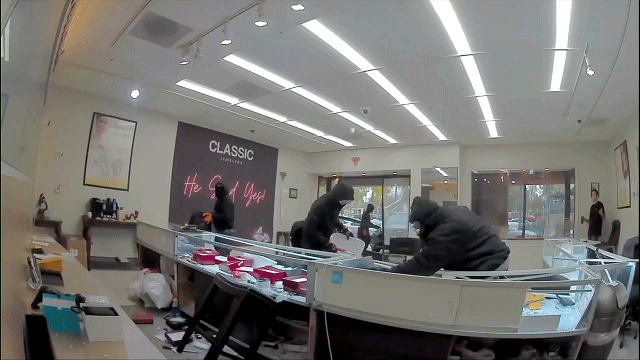Oath Keepers leader arrested and charged with sedition
Fox News correspondent David Spunt has the latest on the ongoing Jan. 6 investigation.
Jury selection began Tuesday in one of the most high-profile Jan. 6 Capitol riot-related cases against accused Oath Keepers founder Stewart Rhodes and four associates charged with seditious conspiracy.
The trial for Rhodes, of Granbury, Texas, and his co-defendants Thomas Caldwell, of Berryville, Virginia; Kenneth Harrelson, of Titusville, Florida; Jessica Watkins of Woodstock, Ohio, and Kelly Meggs of Dunnellon, Florida, will pose the biggest test yet for the Justice Department in its Jan. 6 prosecution. It’s the first-time defendants have been charged under the rare Civil War-era statute in more than a decade.
Seditious conspiracy can be difficult to prove, and the last guilty trial verdict was nearly 30 years ago.
U.S. District Judge Amit Mehta on Tuesday denied Rhodes’ defense attorney's latest bid to move the trial out of Washington, acknowledging that no juries have acquitted Jan. 6 defendants so far, but adding that doesn't tell him about "bias or inherent bias of jurors in the District of Columbia."
JANUARY 6 COMMITTEE POSTPONES HEARING AS HURRICANE IAN APPROACHES

Stewart Rhodes, founder of the Oath Keepers, speaks during a rally outside the White House in Washington, June 25, 2017. (AP Photo/Susan Walsh, File)
Reuters reported that at least two of the prospective jurors questioned on Tuesday compared the Jan. 6 riot to the Sept. 11, 2001, attacks carried out 21 years ago by jihadist terrorists.
Caldwell, a retired U.S. Navy intelligence officer, is the only defendant released from jail ahead of trial.
Authorities say Rhodes, a former U.S. Army paratrooper and a Yale Law School graduate, spent weeks mobilizing his followers to prepare to take up arms to defend former President Donald Trump.
The Oath Keepers allegedly repeatedly wrote in chats about the prospect of violence, stockpiled guns, and put "quick reaction force" teams on standby outside Washington to get weapons into the city quickly if needed, authorities say. Defense attorneys say Rhodes’ actions in the weeks leading up to Jan. 6 were in preparation for what he believed would have been lawful orders from Trump under the Insurrection Act.

Thomas Caldwell, of Berryville, Va., a defendant charged with seditious conspiracy in one of the most serious cases to emerge from the Jan. 6, 2021 attack on the U.S. Capitol, arrives at federal court, Tuesday, Sept. 27, 2022, in Washington. (AP Photo/Manuel Balce Ceneta)
On Jan. 6, 2021, Oath Keepers were captured on camera storming the Capitol in military-style "stack" formation. Rhodes isn’t accused of going inside the Capitol, but phone records show he was communicating with Oath Keepers who did enter around the time of the riot, and he was seen with members outside afterward, according to court documents.
The defense has said that Oath Keepers were dressed in helmets and goggles to protect themselves from possible attacks from left-wing Antifa activists.

Edward Tarpley, the attorney of Oath Keepers leader Stewart Rhodes, arrives at the federal courthouse in Washington, Tuesday, Sept. 27, 2022. (AP Photo/Jose Luis Magana)
In the seditious conspiracy indictment against Rhodes, the Justice Department defines the Oath Keepers as "a large but loosely organized collection of individuals, some of whom are associated with militias."
"Some members of the Oath Keepers believe that the federal government has been co-opted by a cabal of elites actively trying to strip American citizens of their rights," the indictment says. "Though the Oath Keepers will accept anyone as members, they explicitly focus on recruiting current and former military, law enforcement and first-responder personnel."
CLICK HERE TO GET THE FOX NEWS APP
A conviction for seditious conspiracy calls for up to 20 years behind bars. The last time prosecutors secured a seditious conspiracy conviction at trial was in 1995 in the case against Islamic militants who plotted to bomb New York City landmarks. Nearly 900 people have been charged so far in the Jan. 6 riot and more than 400 have pleaded guilty or been convicted at trial.
The Associated Press contributed to this report.










































